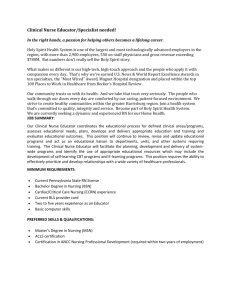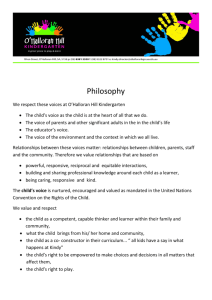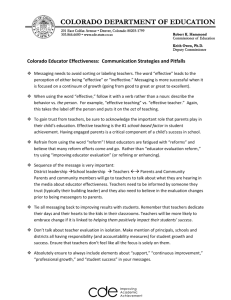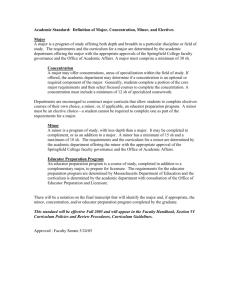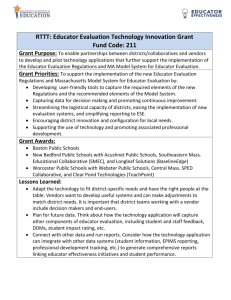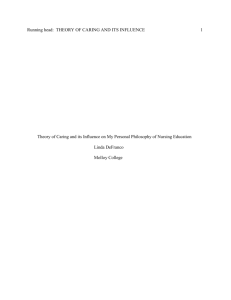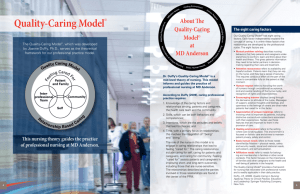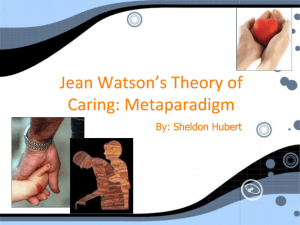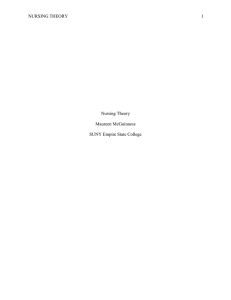Educational Philosophy
advertisement
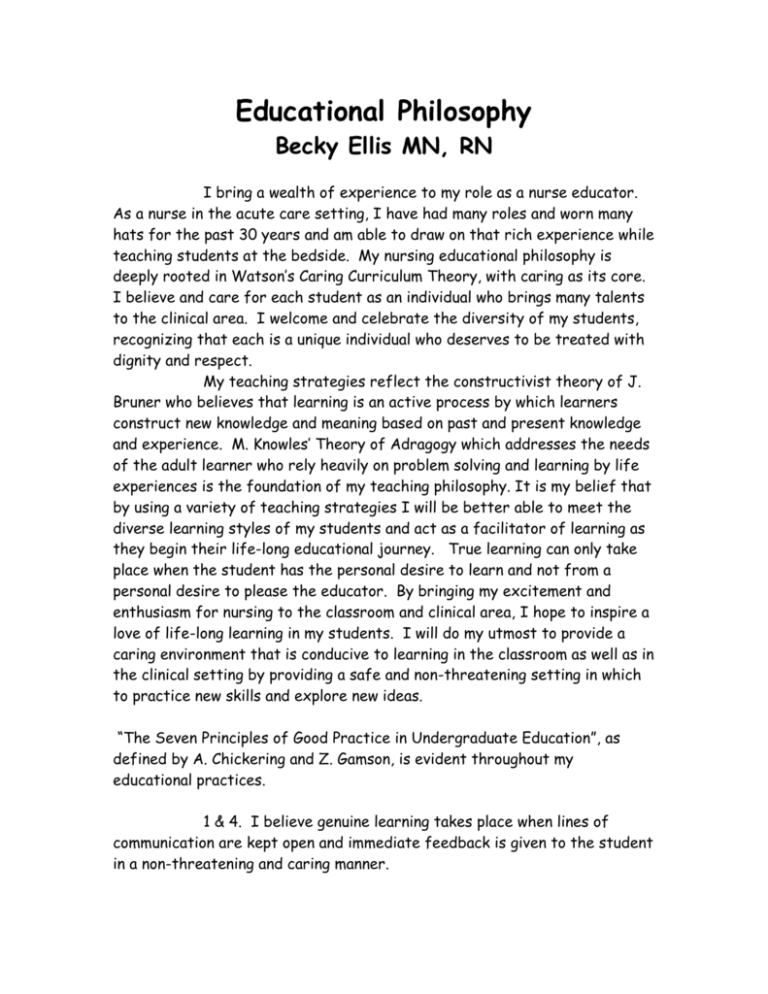
Educational Philosophy Becky Ellis MN, RN I bring a wealth of experience to my role as a nurse educator. As a nurse in the acute care setting, I have had many roles and worn many hats for the past 30 years and am able to draw on that rich experience while teaching students at the bedside. My nursing educational philosophy is deeply rooted in Watson’s Caring Curriculum Theory, with caring as its core. I believe and care for each student as an individual who brings many talents to the clinical area. I welcome and celebrate the diversity of my students, recognizing that each is a unique individual who deserves to be treated with dignity and respect. My teaching strategies reflect the constructivist theory of J. Bruner who believes that learning is an active process by which learners construct new knowledge and meaning based on past and present knowledge and experience. M. Knowles’ Theory of Adragogy which addresses the needs of the adult learner who rely heavily on problem solving and learning by life experiences is the foundation of my teaching philosophy. It is my belief that by using a variety of teaching strategies I will be better able to meet the diverse learning styles of my students and act as a facilitator of learning as they begin their life-long educational journey. True learning can only take place when the student has the personal desire to learn and not from a personal desire to please the educator. By bringing my excitement and enthusiasm for nursing to the classroom and clinical area, I hope to inspire a love of life-long learning in my students. I will do my utmost to provide a caring environment that is conducive to learning in the classroom as well as in the clinical setting by providing a safe and non-threatening setting in which to practice new skills and explore new ideas. “The Seven Principles of Good Practice in Undergraduate Education”, as defined by A. Chickering and Z. Gamson, is evident throughout my educational practices. 1 & 4. I believe genuine learning takes place when lines of communication are kept open and immediate feedback is given to the student in a non-threatening and caring manner. 2. & 3. It is my belief that the student must be actively involved in their own learning process and I will assist the student in identifying their learning needs and facilitate that learning in the clinical area. I encourage and promote student-to-student collaboration in my classroom; enhancing each individual’s capacity to learn. 5. As an educator, I will help students identify and correct time management issues they may have that may be hindering their learning. 6.. I have always held high standards of patient care in my nursing practice and expect the same of my students while in the clinical area. 7. As an educator, I recognize that students bring to the classroom and clinical setting many differing talents, learning styles and life experiences. I welcome the richness that this diversity brings to the educational environment. Not only an educator, I am also a student who views learning as a lifelong process. With our rapidly changing technology and advances in patient care, it is important that I, the educator and the student, stay current in my specialty in order to impart the latest knowledge to my students. I believe that learning is a social activity as Albert Bandura states in his Theory of Social Learning. I believe that role modeling in the clinical area is an effective method of teaching our future professional nurses how to become caring professionals in their own nursing practice. It is my hope that each of my students will come to understand, appreciate and embrace Watson’s Theory on Caring after having been one of my students during the course of their nursing education Becky Ellis MN, RN Nurse Educator Clark Community College
